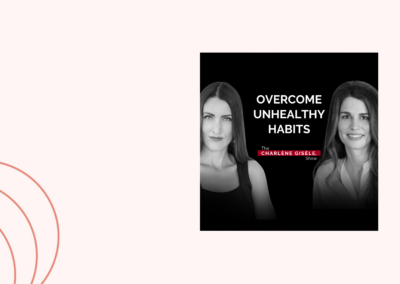“The ability to observe without evaluating is the highest form of intelligence”
– Indian philosopher Jiddu Krishnamurti.
We’ve already discussed the benefits of being in the present moment. Once we become familiar with the practice of focusing on the present moment, the next step is to reach a state of calm and observe our thoughts without judgment.
This process can be quite difficult, as it does not come naturally for most of us. Our minds tend to judge and evaluate everything because we label our experiences notably as either positive or negative.
For example, if we look at a painting, we may think it is beautiful or ugly. If we look at ourselves, we may think we are either good or bad people or, if we have children, we may think we are either good or bad parents.
Did you know that perceptions and attitudes can create your reality?
We may interpret events according to our own judgment, but those events will happen whether we have an opinion about them or not. We may get stressed when we respond to a situation with feelings of anxiety, but someone else may have a completely different reaction and stay calm throughout. Managing this anxiety may be key to moving forward with your mindset and future life.
The difference is in the perception and attitude we have, which in turn can create the reality we live in.
Accepting that things are just the way they are
Our thoughts are like the waves on a still lake after we throw a stone in the water: we see ripples of water moving outwards for a while, and then the surface may become still again. With meditation and other practices like dynamic relaxation, we observe these ripples and let them be without trying to control them.
In nature, nothing is either good or bad: things are just the way they are. If we accept this and learn not to judge, and to give more space to ourselves, people and events, we can make progress towards reaching peace of mind.
But not only that, we can give life a chance to manifest differently; taking that step back is simply a magical way to start to transform ourselves and the world we live in.
Don’t Allow Your Thoughts to Take Over
Can we ever be free of judgment?
Not judging may not always be possible, but we can certainly aim to quieten our mental chatter: when we take a mindful moment we can observe that we are thinking without engaging with the actual content of our thoughts. You can describe your thoughts as “I am thinking” without adding further descriptions.
What does observation of thoughts mean? It means that we become a witness of our thoughts without engaging with them.
Author Eckhart Tolle explains that we create most of our suffering with our thoughts. In Buddhism, the ultimate aim is to end the state of self-inflicted suffering. One of the key benefits of observing our thoughts is that we can choose to watch them and not allow them to take over and potentially make us feel worse.
How to control how we react to situations
Tolle explained that when you observe your thoughts, a new factor comes in: a witnessing presence.
We can, therefore, choose how we react to situations: if, for example, someone is rude to us, we may feel irritated.
However, we can also choose to remain indifferent…
If we are angry for any reason, we can either choose to give importance to our anger and let it take over all our thoughts, or we can choose to acknowledge that we are angry and that this is just a temporary emotion.
If we are worried about giving an important presentation at work, our minds might be racing and we might feel under pressure.
We can work on our feelings of discomfort and tension through dynamic relaxation exercises in the days and hours before giving a presentation. This can help us face the event without giving it a negative connotation, and feel calm and prepared.
Sophrology: Achieving a Sense of Calm Through Observation
In Sophrology we learn to experience things as if it was for the first time, remaining open and limiting our judgement. For a lot of us going through a busy daily life, full of challenges and stresses, accessing this state can feel very difficult.
This is why Sophrology has been uniquely designed to support you with its simple step-by-step approach to experience those new ways of being and living and help you feel in control and empowered every day.
During a session, the first step may simply be to learn to connect with what is happening for you right now.
As you close your eyes, you will be guided through simple exercises that include;
- Relaxation
- Body Awareness
- Breathing
- Gentle Movement
They will allow you to become aware of how you feel and help you balance your body and mind.
Session after session, you may become more able to let go of the mind and become more grounded in a new place within.
Become a non-judgemental observer
We are notably learning to become that observer, even if we may be judgemental observers to start with. We can also learn to observe our sensations and perceptions during the practice.
With repetition, you will notice changes not only during your practice but also in the way you perceive and react to your daily life experience. For example, one of my clients told me that he was very surprised at himself for having just done 3 weeks of daily practice. He was already noticing a big change in the way he interacted with his family at home coming back from work. He used to be snappy, impatient and overwhelmed and he already feels his perception of these family moments has changed.
The fact that Sophrology invites us to connect more with our bodies, learn to deeply relax them and deal with their tensions and messages is one of the powerful ways we can start to THINK LESS and BE MORE.
From daring to BE MORE, we can naturally develop a sense of clarity, acceptance and compassion towards ourselves and others.
The practice of Sophrology comprises 12 Degrees, and each level lets you discover new depths in consciousness.
Beyond a practice Sophrology may become a new way of living, giving us the tools to support a wide variety of more specific challenges such as;
- Exam Preparation
- Fears of Surgery
- Birth Preparation
- Difficulty with Sleep
As well as discovering a more authentic self and developing our personal strength and living in accordance with our life values.
You can experience Sophrology through either individual sessions, group & corporate sessions, or our free Online Sophrology ‘Reach Your Goals’ course. Learn the super tools that can be applied to every situation in your daily life such as when you feel stressed and anxious, lacking in confidence or when you want to feel more empowered. These short, effective Sophrology exercises are perfect to practice on the go, anywhere and anytime you need them most and will help guide you to reach your full potential.
Join our community on Instagram and Facebook and subscribe to our newsletter to receive our monthly blogs and news.



